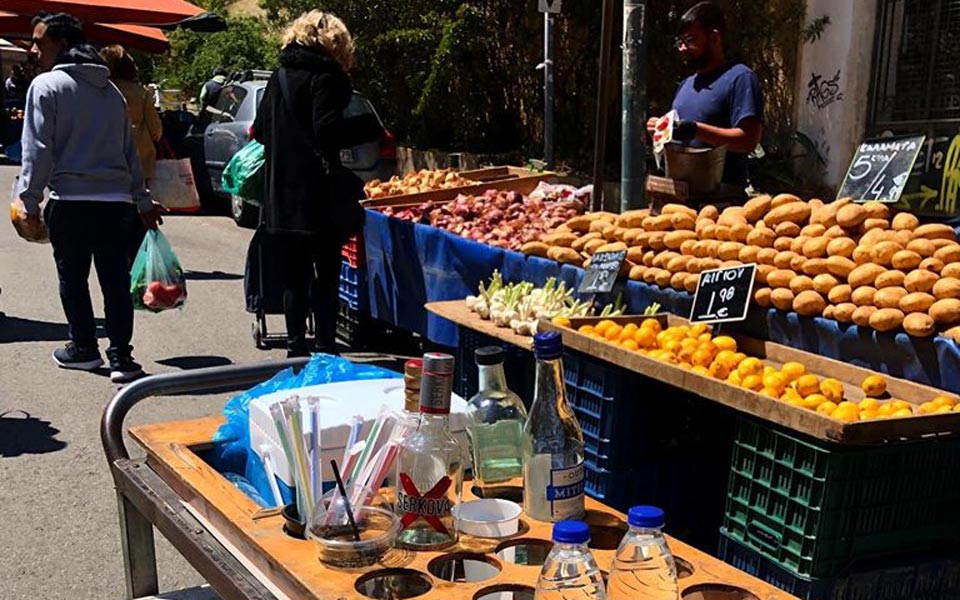Greek street markets are full of fruits, vegetables and other treasures, but there are a few dangers to look out for, too. If you aren’t careful, you’re likely to walk straight into other shoppers as they stop abruptly when their eye catches a particularly attractive heap of strawberries. The wheels of shopping carts can run over your toes, or you can bang elbows with someone who’s reaching for the same tomato, as it’s always crowded at the most enticing stalls.
Big-city street markets in particular feature so much more than fruit and vegetables; there’s everything from potting soil and fertilizer to pajamas, bath mats and curtains, and even bathing suits in the summer. You’ll find food trucks selling souvlaki, or other, more unusual, catering options, like the little mobile bar that rolls up and down through the throngs at the weekly market in Pangrati, in Athens.
The sellers tend to be a raucous bunch, touting their wares as loudly as possible to grab the attention of passing customers: “Barn-fresh eggs, hot from the chicken’s butt,” shouts the egg man. “The only fresher fish you’ll find are still in the sea,” hollers the fishmonger.
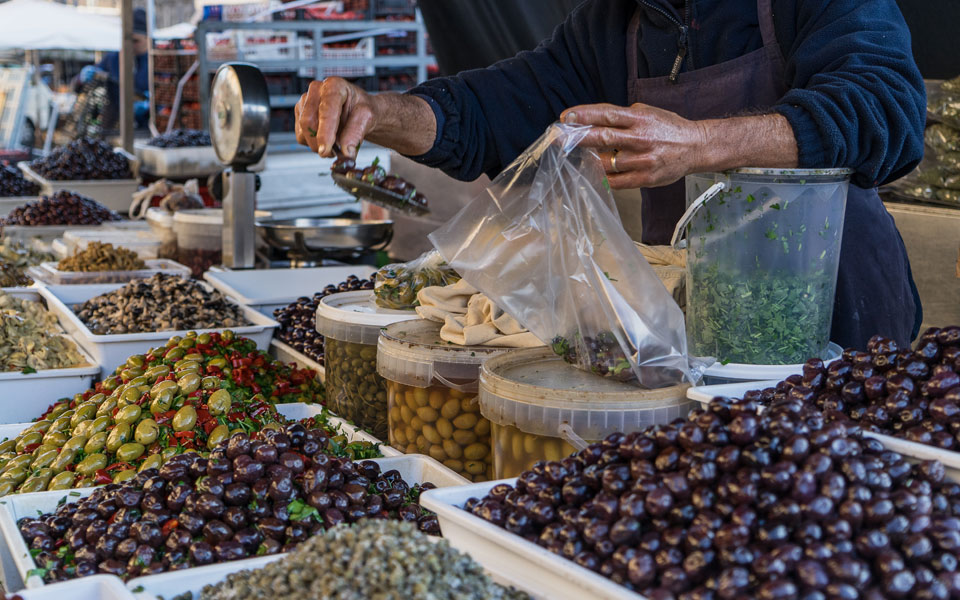
© Shutterstock
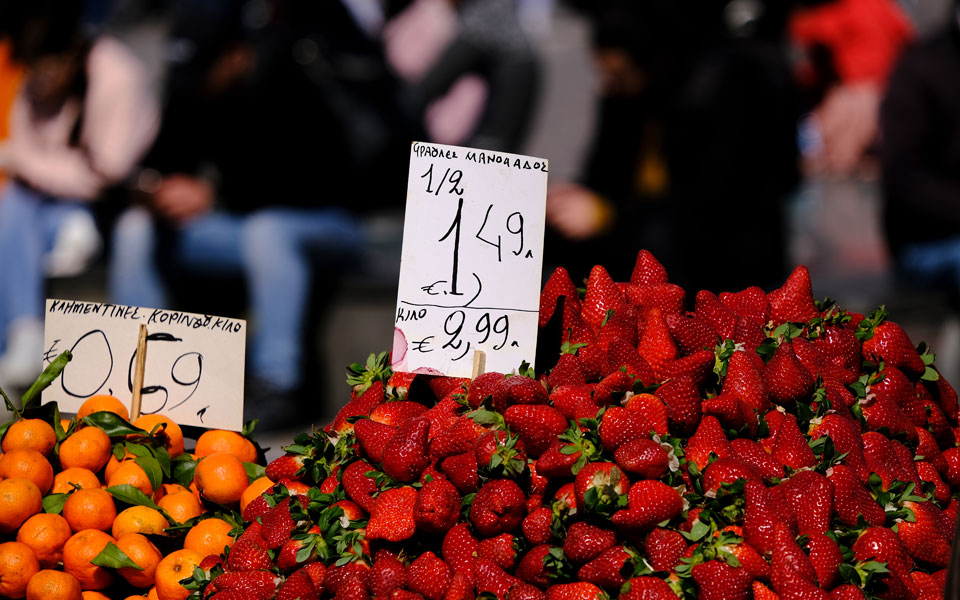
© Shutterstock
Of course, all this was pre-lockdown. Now sellers are more likely to shout: “Two people at a time; wait in line; don’t push; have a little patience.” To avoid over-crowding, there are fewer and more widely-spaced stalls, and sellers are given their places in the market on a rotating basis. Some stall workers wear masks and plastic gloves; most spray the change they give you with an antiseptic to allay your fears. But what hasn’t changed, despite the threat of the virus, is the atmosphere.
An artist setting out to capture the typical Greek street market on canvas would need to rely principally on three big tubes of paint: one green to depict the wide array of fresh edible leafy vegetables and herbs, all brought here straight from the tree or the field; one orange, for the citrus fruits that are present almost all year round; and one red for all the different kinds of tomatoes: big and small, cherry and San Marzano, pretty pink ones from Crete and “ugly” crimson ones from the Peloponnese, with taut skins and juicy flesh.
In spring, that same tube of red would be used to add fragrant strawberries as well, in June it would be cherries, in July it would be watermelons, and in September – with an additional drop or two of blue – you’d get eggplants and purple cabbages. Greece’s street markets are a vibrant calendar marking the passage of the seasons, a snapshot of the Greek countryside at any one time. Just reading the produce placards is a lesson in the country’s geography.
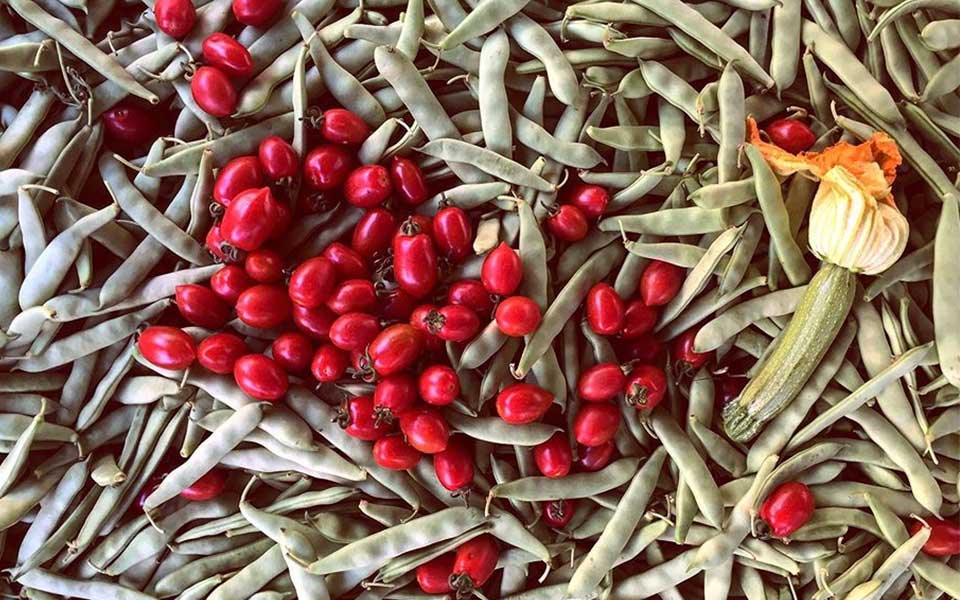
© Nena Dimitriou
The weekly Friday market behind the Panathenaic Stadium on Archimidous Street is particularly delightful, bringing a feeling of country wholesomeness to the urban jungle. It moves to the beat of the city and is usually full of locals from the attractive upmarket neighborhood of Mets as well as Airbnb tenants who choose Pangrati because they wanted to stay in an authentic Athens neighborhood that is still close to the city center.
Spring is the best time to visit, as the bitter orange trees erupt in fragrant blossoms, and shoppers perusing the stalls for the best goods at the best prices can follow that heady scent up and down the street.
The market starts coming to life early in the morning, first attracting people who live closest by, and usually the more elderly of these, who are looking to get the best the sellers have to offer. These early birds will then head home to spend the next part of the morning on their balconies, waving to neighbors below and giving them tips: “You’ll find some lovely tomatoes next to the stall with the olives.”
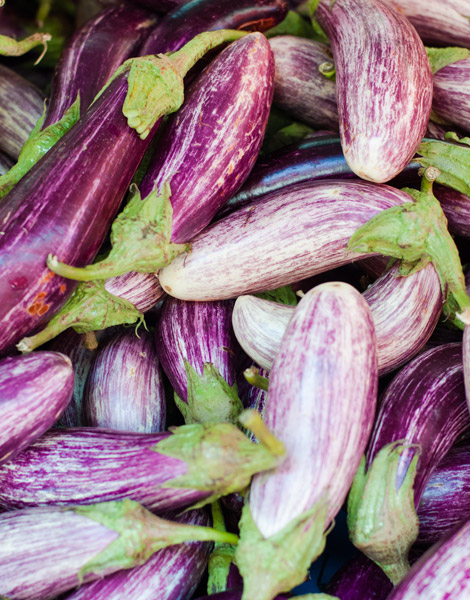
© Shutterstock
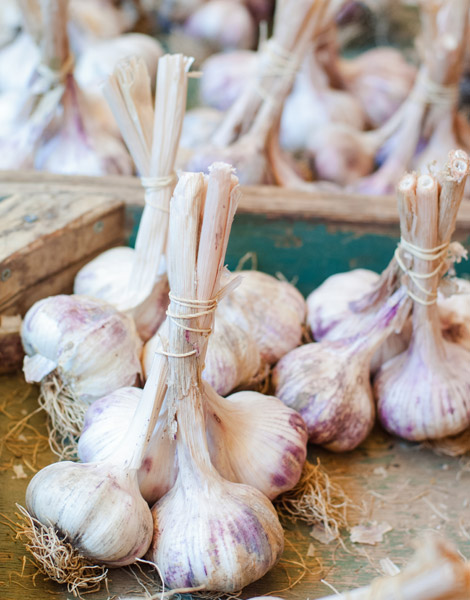
© Shutterstock
During my last visit to the market, it was clear that few residents had been able to resist the temptation of shopping in the balmy spring weather, but they were still mindful of social distancing and made sure to keep things moving along by making their purchases as quickly as possible.
The only person who appeared to be dawdling was the market’s barman, pushing his shopping cart stocked with liquor bottles, chilled mixers and a cooler of ice and serving cupfuls of ouzo, tsipouro, gin and vodka straight up, on the rocks or with a mixer. True, the cocktail menu is limited, and no one really likes to drink from a plastic cup, and there’s no music or any of the cozy ambience of a proper bar.
But you do get the full atmosphere of the market at what may be the only watering hole in town that’s still open for business – not to mention the amazing location, right beside the stadium and just a arm’s reach from a wonderful array of tasty snacks.
Beat that if you can!

